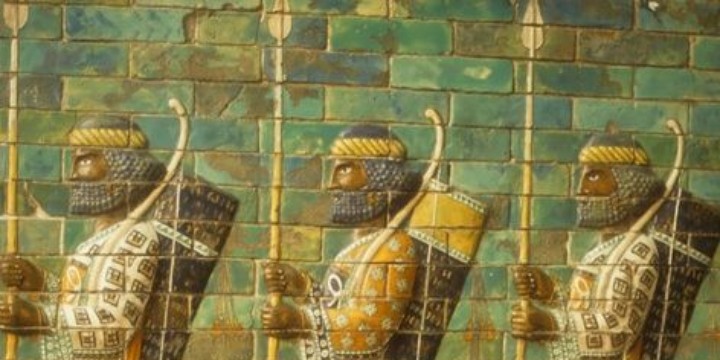Waiting on the Lord! One Year, 30 Year, 2,600 Year Prayers!
Dennis Brown
In Isaiah 40, Isaiah gives encouragement to Judah when he sees them in captivity under the Babylonians. Isaiah told Hezekiah that because of Judah's disobedience that they would go into captivity. He even sees Cyrus, the Persian coming to deliver them and permitting them after 70 years to return home. He tells them that they who "wait on the Lord will renew their strength; they shall mount up with wings as eagles; they shall run and not be weary; they shall walk and not faint."
What did it mean for them to wait on the Lord, and what does it mean for us? What does it mean to pray 10, 20, 30 years for something? How about 2600 years? This is the time from Judah's captivity to the present when we can see how God has been working during that whole time frame.
Waiting! We hate that word, don't we? We can't stand to be put on "hold". Everything today is supposed to be instant! We can't stand it when people don't text us back--NOW! We are upset when people don't reply to our e-mails. We can download our books instantly on Kindle. We get movies on demand on Netflix. "On demand"..."now"...doesn't that describe modern life? Yet how does a person brew good (not instant) coffee, play the piano, grow a marriage that lasts fifty years, walk with God. In all of those instances, "instant" doesn't work. Maybe God has another agenda in mind when he tells us to "wait."
Here is something interesting that I found out about Judah's Babylonian captivity. I found it in Paul Miller's A Praying Life, the best book on how to pray and wait on the Lord that I have ever read. (By the way, you can download it instantly on Kindle!) Because Judah went into captivity for seventy years and returned only to be disappointed again:
- They learned to create synagogues (which was the precursor of the local church). They weren't able to go to the temple anymore.
- They learned to cling to their scrolls--the Biblical story, as we must cling to the Bible and its story to make sense of our lives.
- They were purified from mixing their religion with idols.
- Their dispersion became the base from which Paul and others were able to spread the gospel.
- They left the world with something unique--monotheism--belief in a transcendent, holy, personal God separate from the world. This was the foundation of Christian thought and modern science.
- Because they were monotheists, they got upset when Jesus claimed to be the incarnate God and participated in Jesus crucifixion--the means of our salvation. Jesus was raised from the dead and we are blessed with that message 2,600 years later!
Don't you see that God is working on his timetable, not ours? He is about soul-making and the redemption of the world. He is in eternity. We are in time. So when we wait on the Lord and pray 30 year prayers (aren't there situations like that in our lives?), or 2,600 year prayers (the time from the Babylonian captivity to the present), we acknowledge that He is in control and not us, and we depend on His good grace to work things out "in his time." So "wait" expectantly for Him to show up...but again, in His time not ours!



